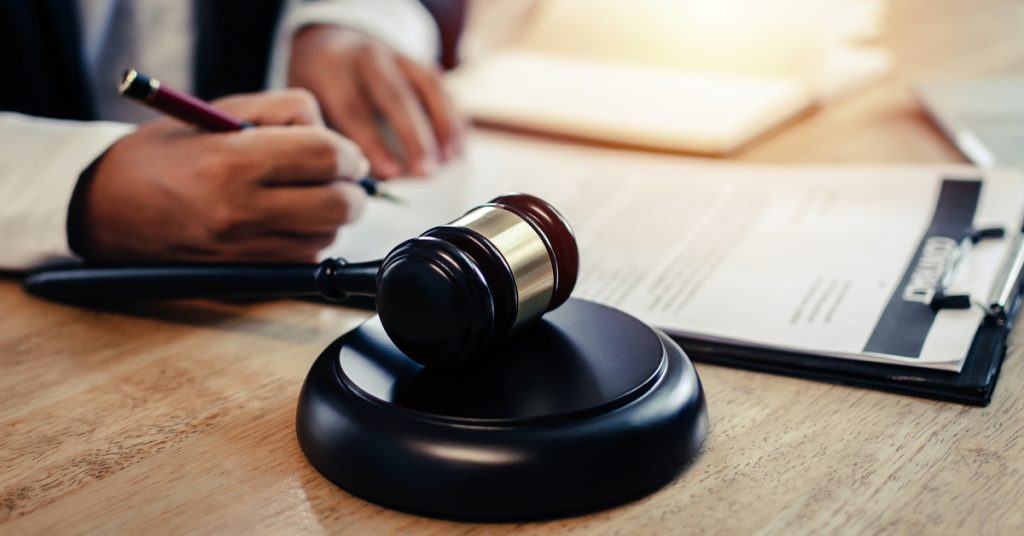
The feeling of opening an official envelope from the Florida Board of Accountancy or the Department of Business and Professional Regulation (DBPR) is a mix of dread and confusion. You may have worked for years to build your career as a Certified Public Accountant (CPA), only to find your professional license—your livelihood—suddenly at risk.
We understand the gravity of this situation. This article is designed to demystify the administrative complaint process, clarify your rights, and provide a clear, solution-oriented path forward. You don’t have to face this alone. Need immediate guidance? Call Elevate Legal Services, PLLCtoday at 561-770-3335 for a confidential consultation, or contact usto speak with an attorney about your case.
By the end of this guide, you will have a comprehensive understanding of why these complaints are filed, what the potential consequences are, and the crucial steps you must take to build a strong legal defense. You’ll learn about the benefits of professional legal representation and how our experienced team at Elevate Legal Services, PLLC, can help with your Florida CPA administrative complaint defense.
What is a Florida Administrative Complaint?
An Administrative Complaint is a formal legal document issued by the DBPR on behalf of the Florida Board of Accountancy. It serves as an official notice that you are being accused of violating a specific Florida statute or administrative rule.
It is a formal accusation, not a final judgment. However, it signals the beginning of a legal process that can result in disciplinary action against your license. Ignoring it is not an option.
Common Reasons for a CPA Complaint
Many CPAs are surprised to learn they are under investigation. Allegations can stem from various sources, including client disputes, audits, or even minor administrative oversights. Here’s what that means legally.
The charges are often rooted in one of three key Florida statutes.
F.S. 473.323(1)(a): Misrepresentation, Fraud, or Gross Negligence
 This is one of the most serious allegations a CPA can face. It covers a broad range of professional misconduct that can severely damage your reputation.
This is one of the most serious allegations a CPA can face. It covers a broad range of professional misconduct that can severely damage your reputation.
- Financial Fraud:Engaging in fraudulent activities or assisting a client with fraudulent financial reporting.
- Misrepresentation:Providing false or misleading information to clients, the public, or the Board.
- Gross Negligence or Dishonesty:Demonstrating a significant lack of professional care that leads to client harm. This could include significant errors in an audit or a failure to follow professional standards.
- Deceptive Practices:Using misleading or untruthful advertising or business practices.
Allegations under this statute carry severe penalties, including license suspension or revocation and substantial fines.
F.S. 473.323(1)(h) and Rule 61H1-33.003(1)(a): Continuing Professional Education (CPE) Violations
The majority of administrative complaints we see are related to Continuing Professional Education (CPE)requirements. While they may seem like a simple administrative matter, the Board takes these violations very seriously.
- Failure to Complete Required Hours:You must complete 80 hours of CPE every two years, with specific hours dedicated to accounting, auditing, and ethics. Failing to meet this requirement is a common issue.
- Inadequate Reporting:Submitting incorrect or falsified CPE records.
- Failure to Retain Records:The Board requires CPAs to keep detailed records of all CPE hours for at least five years. If you cannot produce these records upon request, you may face a complaint.
- Late Completion:Even if you eventually complete the required hours, a late finish can still trigger an investigation and complaint.
F.S. 473.323(1)(k): Failure to Comply with a Subpoena or Order
This statute serves as a direct warning to CPAs who might be tempted to disregard an official request from the Board. If the DBPR issues a subpoena for your records or an order for you to appear, non-compliance can lead to its own administrative complaint.
- Ignoring a Subpoena:The Board has the authority to subpoena financial records, client files, and other documentation related to an investigation.
- Refusing to Cooperate:Obstructing an investigation by refusing to provide information or appear for a deposition.
This type of complaint can compound the initial issue and result in harsher penalties.
The Administrative Complaint Process
Receiving a complaint is just the first step. The Florida Board of Accountancy follows a formal process that can be complex and intimidating.
- Initial Complaint and Election of Rights Form
When you receive the complaint, it will be accompanied by an Election of Rights form. This is a critical document. It presents you with three options:
- Option 1: Informal Hearing.You can accept the facts as stated in the complaint and argue for a lesser penalty.
- Option 2: Formal Hearing.You can dispute the facts in the complaint and request a formal hearing before an Administrative Law Judge.
- Option 3: Waive Your Rights.You can surrender your license, an option that should never be chosen without legal advice.
- Investigation and Fact-Finding
Following your response, the DBPR’s investigationcontinues. This is the stage where the facts of your case are established. Our role is to build a strong counter-narrative and gather all available evidence to support your defense.
- Hearing or Settlement
Depending on your Election of Rights, your case will either proceed to a hearing or we will work to negotiate a settlement with the DBPR’s prosecutor. A well-negotiated settlement can help you avoid the public scrutiny and high costs of a formal hearing.
Benefits of Professional Legal Representation
Handling an administrative complaint on your own is a significant risk. Here’s what a professional can do for you.
An experienced attorney can provide invaluable guidance and strategic advocacy to protect your license and career.
- Understanding the Law:We have a deep understanding of Florida’s complex accountancy laws and administrative procedures. We know what evidence is needed and how to present it effectively.
- Strategic Defense:We will meticulously review your case to identify weaknesses in the state’s evidence and build a strong defense. This may involve demonstrating a lack of intent to defraud, showing compliance with professional standards, or negotiating for lesser penalties.
- Mitigating Consequences:Our primary goal is to minimize the impact on your career. We work to negotiate penalties that avoid license suspension or revocation, allowing you to continue practicing.
- Peace of Mind:Knowing you have a knowledgeable and empathetic advocate in your corner allows you to focus on your clients and your business.
Frequently Asked Questions
 Q: Can a complaint really lead to the loss of my CPA license?A: Yes. Depending on the severity of the allegations, particularly those involving fraud or gross negligence, the Board has the authority to revoke a CPA’s license. Even for less serious violations, repeat offenses can lead to license suspension.
Q: Can a complaint really lead to the loss of my CPA license?A: Yes. Depending on the severity of the allegations, particularly those involving fraud or gross negligence, the Board has the authority to revoke a CPA’s license. Even for less serious violations, repeat offenses can lead to license suspension.
Q: What is the first thing I should do after receiving a complaint?A: Your first and most important step is to contact a legal professional experienced in DBPR defense. Do not communicate with the DBPR or sign any forms until you have received legal advice.
Q: Will the complaint become public record?A: Yes, if the Board takes disciplinary action, it will become part of your public record. However, our strategic goal is to defend your case in a way that avoids or minimizes public disclosure.
Q: How long does the administrative complaint process take?A: The timeline can vary widely depending on the complexity of the case. It can range from a few months to over a year, especially if it proceeds to a formal hearing. Having legal representation can often expedite a favorable resolution.
Q: Is it possible to settle with the Board and avoid a hearing?A: In many cases, yes. A significant number of administrative complaints are resolved through a negotiated settlement. Our attorneys are skilled in negotiating with DBPR prosecutors to secure the best possible outcome for you.
We Are Here to Elevate Your Florida CPA Administrative Complaint Defense
Your career is more than just a job; it’s a lifetime of hard work, dedication, and trust. A single administrative complaint should not be allowed to jeopardize all that you have built. At Elevate Legal Services, PLLC, we stand as a strong and reassuring partner for CPAs facing these challenging times.
Our client-centered approach ensures you receive personalized attention, a clear strategy, and a powerful defense from attorneys who understand what is at stake.
If you have received an Administrative Complaint, don’t wait. Call us today at 561-770-3335 or email us at [email protected] for a confidential consultation, or fill out our online contact form. We are ready to help with your Florida CPA administrative complaint defense.





